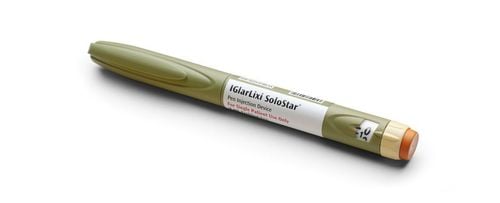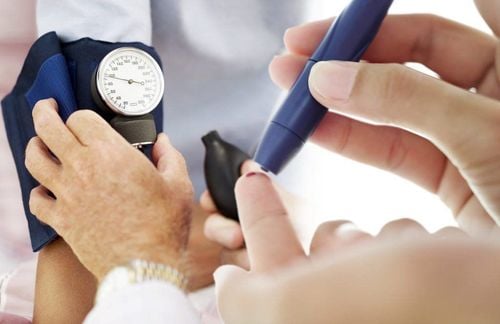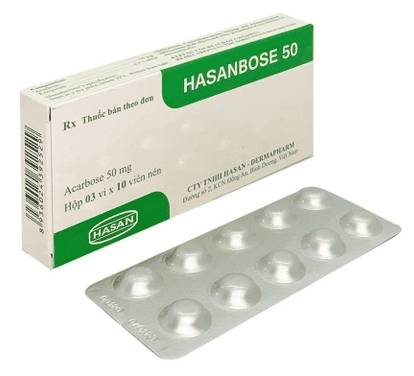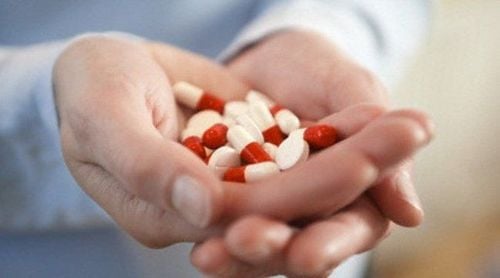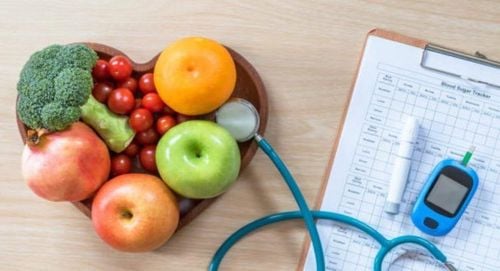This is an automatically translated article.
The article is professionally consulted by Master, Doctor Vu Thi Duyen - Department of Medical Examination & Internal Medicine - Vinmec Hai Phong International General Hospital.
Nutrition makes a very important contribution to the prevention and treatment of diabetes with the aim of ensuring adequate nutrition, balanced in both quantity and quality, to well regulate blood sugar, maintain weight. desired weight, ensuring that the patient is healthy enough to live and work. So the diet for diabetics is the most suitable.
1. What do diabetics eat?
Many people have the notion that diabetics need to limit their intake of almost all foods. However, if such a diet is not suitable. So in fact, there are still many foods for diabetics that can be enjoyed and are good for health and ensure stable blood sugar.1.1. Beans Beans contain a lot of fiber and protein that makes you feel full for a long time. A Canadian study found that people who added one or more cups of soy milk to their diet each day had better blood sugar control and lower blood pressure. Beans are not an expensive food and are versatile in their preparation. So this is definitely the first suitable diabetic food.
1.2. Green vegetables Green vegetables are rich natural sources of fiber, vitamins and minerals. At the same time, green vegetables are also foods with high levels of antioxidants, phytochemical compounds, which promote the body's immune system.
Vegetables such as mustard greens, radishes, kale, broccoli, spinach,... are ideal foods suitable for diabetics' nutrition. In particular, these foods are low in carbohydrates and calories, and do not raise your glycemic index.
1.3. Fruits Fresh fruits containing less sugar such as grapefruit, oranges, tangerines, apples, guava... are very good fruits for people with diabetes because this food group provides a lot of good vitamins.
Although fruit can provide patients with a certain amount of sugar, it is a slow-release sugar (ie it needs to go through the digestive process to become absorbed into the body) so it helps Blood sugar levels don't go too high or too low, and they also provide beneficial fiber and minerals that aid in blood sugar control.
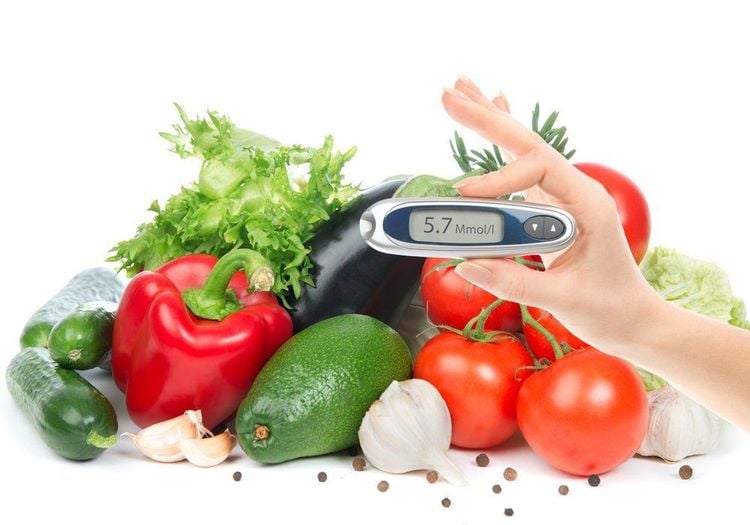
These healthy fats help prevent and slow the progression of diabetes and heart disease. Dried fruit seeds are low in carbohydrates, protein and fats that help stabilize blood sugar.
However, when using olive oil, you should pay attention to only using it at normal temperature, not processing it with high temperature because they can create more toxic substances for the body.
1.5. Fish Fish is a very good food for diabetics. This is because fish is a very good source of fat and protein as an alternative to meat. Nutritionists recommend adding fish to the diet for diabetics at least twice a week.
Fish such as tuna, sardines, salmon, mackerel are foods rich in Omega-3 fatty acids that are not only good for people with diabetes but also good for heart health by reducing blood pressure and improve cholesterol levels.
1.6. Eggs The addition of eggs to the diet for people with diabetes is really beneficial and helps to reduce the amount of bad LDL cholesterol in the blood and increase the amount of good HDL cholesterol. Therefore, eating a lot of eggs can help reduce the risk of heart disease, reduce inflammation and make patients not feel hungry. Some studies also show that eggs are rich in zeaxanthin and lutein - two antioxidants that are very good for eye health, especially in egg yolks.
2. Principles of nutrition for people with diabetes
Diet for diabetics should ensure the following principles:Choose foods that do not raise or lower blood sugar after meals, such as need to combine foods with high fiber such as cracked rice, black bread , vegetables, tubers, ... This group of foods helps to absorb sugar into the blood more slowly, so that blood sugar levels after meals increase slowly and stably, so it does not cause serious consequences. Avoid large meals that can be divided into many small meals during the day if blood sugar control is not stable, should eat 3 main meals and have at least 2 more snacks between the afternoon and evening. However, patients should not eat breakfast snacks because after breakfast blood sugar is usually highest during the day due to hormones that increase blood sugar in the body. Eating on time according to the body's physiology does not skip meals even when sick or do not want to eat. Avoid eating and/or drinking foods containing a lot of fast-absorbing sugars in sugar, molasses, honey, jams, dried fruits, candy, chocolate, and bottled soft drinks.

Master. Doctor. Vu Thi Duyen has more than 10 years of experience in general medical examination and treatment, especially has strengths in examination and treatment specialized in nephrology - Endocrinology. The doctor has participated in many domestic and foreign seminars and is currently a Nephrologist - Endocrinologist at the Department of General Internal Medicine, Vinmec Hai Phong International General Hospital.
Please dial HOTLINE for more information or register for an appointment HERE. Download MyVinmec app to make appointments faster and to manage your bookings easily.





